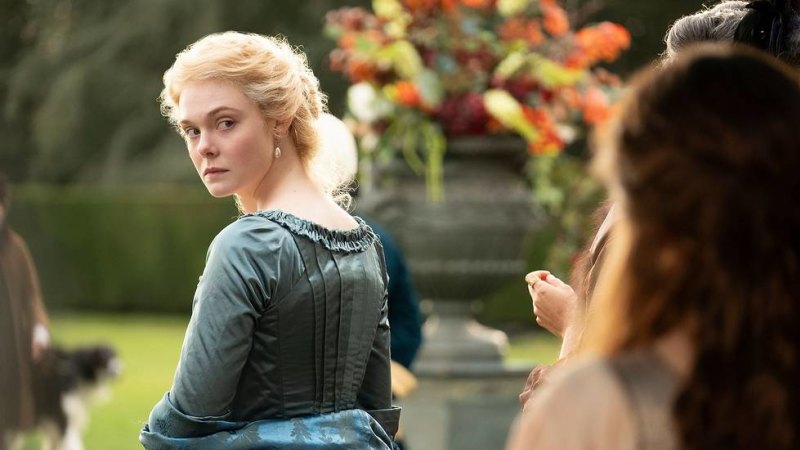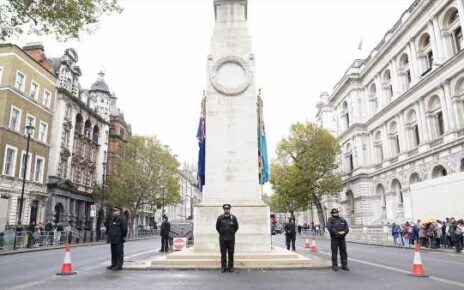Save articles for later
Add articles to your saved list and come back to them any time.
London: When the rebellion was over, its leader was taken to the Kremlin. He was drawn, quartered and decapitated. The Russian government then cracked down even harder. But the mutiny and its instigator captured the romantic imagination of Russians, in time inspiring some of their greatest literature.
The execution in this case took place in 1774. The rebel leader was a Cossack named Yemelyan Pugachev, his nemesis was the Tsarina Catherine the Great, and the novel — The Captain’s Daughter by Alexander Pushkin — was published a whole lifetime later.
Elle Fanning as Catherine in The Great, in the historical drama-comedy.
Yevgeny Prigozhin appears — so far — to have arranged a fate better than Pugachev’s, after the mutiny he led this weekend first fizzed and then fizzled — all within a few dramatic hours that will no doubt also be the stuff of future storytellers.
The boss of the Wagner Group, a ruthless mercenary militia, has now decamped to neighbouring Belarus, where he and an as-yet unknown number of his soldiers of fortune will regroup, at the pleasure of that country’s dictator, Alexander Lukashenko.
Russian President Vladimir Putin, who in this episode is to Prigozhin what Catherine was to Pugachev, never mentioned the Wagner Group or its leader by name when he addressed the nation on Saturday, while Prigozhin and his fighters were driving north from Rostov to Moscow.
But he did promise that the “traitors” would “inevitably be punished” — “harshly.” Again and again in his two decades in power, this former KGB-man has said that the one thing he can never forgive is betrayal.
Yevgeny Prigozhin and Vladimir Putin. Credit: Nine
If we can believe Lukashenko’s account of a phone call between him and Putin on Saturday, the Russian president indeed wanted Prigozhin killed. But Lukashenko talked him out of it, he claims, before calling Prigozhin and telling him to desist or “be crushed halfway like a bug.”
Pugachev might have recognised the imagery.
One reason for Putin not to crush, draw and quarter, or otherwise remove Prigozhin — yet — is that the Wagner boss, after his brutal but effective fighting in Ukraine, appears to have quite a bit of support among Russian soldiers.
As he pulled out of Rostov, a city his mercenaries briefly seized on Saturday, he was high-fiving people. According to US spies, he may even have had the support of top brass such as Sergei Surovikin, nicknamed General Armageddon for his ruthlessness.
Catherine the Great.Credit: Getty
So Putin has to decide how to deal with the likes of Prigozhin, Surovikin and others on a long list he’ll presumably have on his desk by now. (Surovikin, who in an awkward video message came out against the mutiny, appears to have vanished as of this writing.)
For now, he may restrain himself. Knowing he looked weak during the mutiny, Putin seems keen to play the event down, pretending that a united country backed him and resisted the mutineers. That, however, strikes a lot of Russians as ludicrous.
One of the sceptics is Alexey Navalny, a Russian opposition leader who was poisoned in 2020 with Novichok, a nerve agent, and now languishes in an isolated cell in one of Putin’s high-security prisons. When his lawyers told him about the mutiny, he at first “thought it was some kind of new joke or Internet meme.” But he took heart when he realised that “no one stood up to defend Putin, the nation did not unite around him”.
Hence the dilemma Putin now confronts: In terms of vengeance, he can overreact or underreact. And his survival — political or physical — may depend on the choice.
Yemelyan Pugachev.
One model on his mind may be Turkey in 2016. That was when President Recep Tayyip Erdogan — cordial with Putin and a neo-Ottoman version of strongman autocracy — also faced an attempted coup. As soon as it failed, though, Erdogan took the opportunity to order reprisals and purges so sweeping that almost anybody he didn’t like was gone. In this way, he emerged stronger from the rebellion.
The many mutinies in African countries in recent decades tell a different story. Even though most of them didn’t immediately escalate into full-blown and successful coups d’etat, they did increase the probability of subsequent putsches — as in Sierra Leone in 1992 or Mali in 2012 — or civil wars — as in Ivory Coast in 2002.
One problem for Putin is that he’s already been so repressive for so long, his enemies have learned to hide their intentions and bide their time. He might not know whom to crack down on. And he can’t lock up everybody at once.
All of this suggests that Russian politics will henceforth resemble war: long periods of boredom, punctuated by moments of sheer terror. Boredom as the next mutiny’s leaders keep their heads down; terror as they strike and either succeed or fail.
This is not what anybody would wish for a country with about 6000 nuclear warheads, the largest arsenal in the world. Nor for a regime that may be tempted to flaunt its power — or overcompensate for its loss — by escalating its genocidal war against Ukraine. It makes you yearn for the relative simplicity of Pushkin and his Cossack hero.
Bloomberg
Get a note directly from our foreign correspondents on what’s making headlines around the world. Sign up for the weekly What in the World newsletter here.
Most Viewed in World
From our partners
Source: Read Full Article






